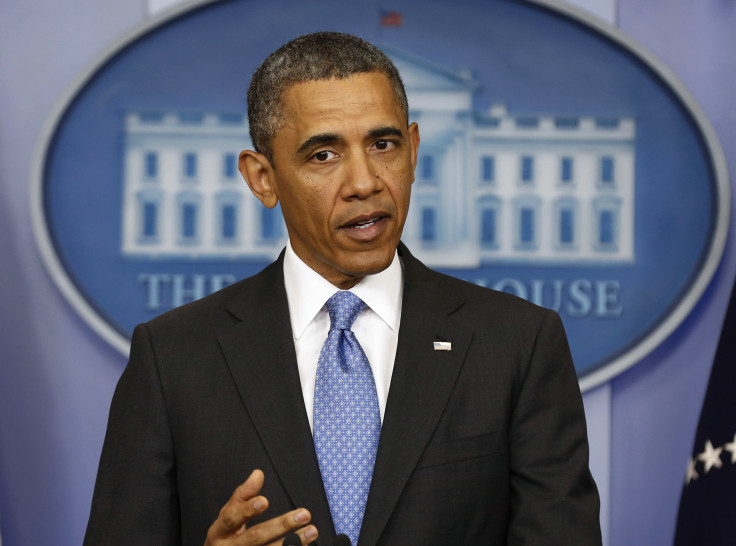Obama Is More Nixonian Than Nixon, Critics Say, In Response To IRS Tea Party Scandal And AP Phone Seizure

“[T]his is a far cry from President Richard Nixon’s interest in intimidating his political enemies through selective audits of personal tax records,” the New York Times’ editorial board wrote in an op-ed piece on Monday.
The comment was in response to the Internal Revenue Service’s recent practice of targeting groups with “tea party” in their name -- one of two government-overreach scandals brewing this week under President Obama’s watch. That the Times felt compelled to draw a comparison between the current administration and that of our disgraced 37th president is not surprising. Nixon resigned in the wake of a scandal that involved serious breaches of privacy and, perhaps more important, attempts to cover up his administration’s involvement.
Similarly, in the last week we learned not only that the IRS had habitually targeted groups based on presumably conservative keywords, but also that the U.S. Justice Department has seized the telephone records of reporters and editors from the Associated Press, a move the news organization called a “massive and unprecedented intrusion.”
In both cases, the White House said it had no knowledge of the events. But it’s the precarious road between plausible deniability and political accountability that reeks of Nixonian implications in the eyes of some commentators.
“I don’t think Obama ever wanted to be on the same page as Richard Nixon,” wrote Time magazine’s Joe Klein in response to the IRS scandal. “In this specific case, he now is.”
The Department of Justice-AP scandal is drawing even fiercer Nixon comparisons, including from IBTimes’ Mike Obel, who heralded the scandal as a return to the “sleaze factor” of the Nixon era.
On the Huffington Post, author Will Bunch concurred: “Since the day he took office, the Obama administration has undertaken an assault on government whistleblowers -- people informing citizens of what their government doesn’t want them to know -- that surpasses anything that Nixon or any other president has done.”
It doesn’t help that Mr. Watergate himself, Carl Bernstein, called the Department of Justice’s actions “outrageous” and “totally inexcusable,” on MSNBC’s “Morning Joe,” on Tuesday.
And, yes, even a few minor celebrities have sounded off on the issue:
My comparison between Nixon and Obama is that they are and were vengeful presidents. Moral police and Immoral police. Nixon not Progressive.
- Chuck Woolery (@chuckwoolery) May 14, 2013
Since the AP scandal broke on Monday, Obama has kept a sharp distance from it, mainly by not addressing it personally. The White House Press Secretary Jay Carney did issue the following statement:
“Other than press reports, we have no knowledge of any attempt by the Justice Department to seek phone records of the AP. We are not involved in decisions made in connection with criminal investigations, as those matters are handled independently by the Justice Department.”
By law, the attorney general, not the president, must sign off on subpoenas for the telephone toll records of journalists, so the White House’s “we know nothing” explanation is at least possible. But the plausibility of the account becomes admittedly more questionable when we consider that the phone records in question are connected to a foiled terror plot.
The DOJ has not said why it sought the phone records, according to the AP. The law states that such subpoenas should be authorized only as a last resort, and that affected media outlets must be told in advance -- unless doing so would “pose a substantial threat to the integrity of the investigation in connection with which the records are sought.”
Whether or not standard procedure was followed in this case is at least as relevant as how far up the chain of command it goes. But it will be interesting to watch it unfold as we near the 40th anniversary of the day President Nixon looked into a television camera and told the American public, “People have got to know whether or not their president is a crook.”
Today, that classic Nixonian dictum has never been more true.
Got a news tip? Send me an email. Follow me on Twitter: @christopherzara
© Copyright IBTimes 2024. All rights reserved.






















